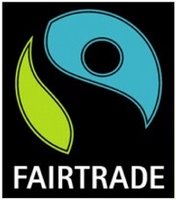FAIR TRADE COFFEE AND COLUMBIA
With our eyes on Columbia through the Global Women Connecting Columbia Network Project, our taste buds can be directed toward Columbia, too. At the recent Women’s Ministries Heartline Conference, Jackie Bunch, President of Global Women Connecting, lifted up the plight of our Columbian Sisters in Christ and the need for us to learn more about the situation in Columbia and to identify ways we can make a difference in the lives of people there. Purchasing Fair Trade Columbian coffee is a great way to start! Consider this, with every sip of your morning cuppa, you can be making a statement of faith...you can help shine the light of God’s love into Columbia! Get your church to purchase and serve Columbian Fair Trade coffee, and help everyone in your congregation be part of this important ministry.
So, here’s some information to use to educate yourself and your congregation, excerpted from an article by Lutheran World Relief. Having that Columbian cappuccino or cuppa is up to you!
THE PROBLEM...
The Coffee Crisis in Columbia
In Colombia, the effects of the global coffee crisis have been devastating. During the 1970’s, coffee accounted for well over half of Colombia’s legal exports. The average price on world commodities markets was nearly $3 per pound. By 2000, coffee accounted for less than 10% of Colombia’s legal exports, and by 2002 the price dropped to only 45 cents per pound. At that price, for a $2.00 cup here in the Australia, less than one cent went to the farmer who grew the beans. The coffee crisis, combined with economic policies begun in the early 1990’s that removed protections from other agricultural products like corn, left thousands of farmers with few options to make ends meet or hold onto their farms by growing legal agricultural crops.
A Dangerous but Profitable Cash Crop: Coca
This crisis has caused many Columbian farmers to switch from growing coffee to coca, the plant used as raw material for producing cocaine. A farmer explained his decision to grow coca: “When it comes down to watching my children go hungry or growing coca, I’ll break the law.”
The Civil Conflict
Drug money fuels all sides of Colombia’s war, with tragic consequences, but it is not at the root of the conflict. The conflict in Colombia began almost 30 years before the drug trade took hold. The war pits leftist guerillas against the government and right wing paramilitary groups. However, the majority of victims in Colombia’s conflict are not members of these armed groups, but civilians caught between them—especially poor, rural civilians. More than 3 million Colombians have been displaced from their homes, and over 70% of the country’s arable land is now owned by just 3% of the population.
In sum, war, poverty, displacement and coca production leaves farmers caught in a vicious cycle: violence leads to displacement and poverty, and displaced and impoverished farmers are forced by a lack of options into coca-production or into armed groups. Much of this destructive cycle is fueled both by drug-trafficking dollars and, since 2000, by $4 billion of U.S. aid, 80% of which has gone to the Colombian military. U.S. aid has also been spent on aerial fumigation of coca plants, but these plants are often located near subsistence food crops which fumigation also destroys, causing further hardships for poor farmers.
THE SOLUTION...
Fair Trade shares the profits of the coffee trade with those who grow the crop, helping them to build a better future for themselves and their communities. By working together in democratically organized cooperatives, farmers can sell their coffee directly to international Fair Trade buyers. They receive a price that covers their production costs and guarantees them a living wage.
Only the most organized communities, those practiced in the arts of local democracy, dialogue and cooperation, have been successful in taking a peaceful stand against the conflict. Fair Trade cooperatives strengthen these qualities. The reasonable wages allow farmers to resist planting coca or joining an armed group, and can allow communities to become models of sustainable alternatives to the conflict. As economic stability and fairness take root, they nourish the community’s growth and make it possible for peace to blossom.
Learn More
Order Fair Trade coffee today and start making a difference
To order Fairtrade in the Eastern Suburbs (to use or sell at your church or workplace) contact People for Fair Trade at 03-9511 0152 or e-mail orders@fairtrade.asn.au click on the link in the side bar to visit the Fairtrade website.
by Ana Gobledale





